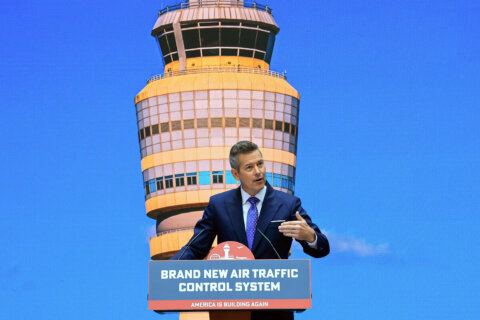WASHINGTON — If it seems like you’re spending more time in your car these days, there’s good reason — you are spending more time in your car.
New national figures released by AAA Foundation for Traffic Safety show the typical driver is going farther, and taking more time to get there, while a separate INRIX study shows Washington is the second-most congested city in America — although drivers are spending slightly less time behind the wheel than the year before.
According to AAA, a typical U.S. driver drives 31.5 miles every day, which is more than a 5 percent increase over 2014.
Nationally, drivers spend an average of 51 minutes per day behind the wheel, which adds up to an additional 20 minutes per week, in the same period.
Each American driver, according to the automobile non-profit, travels 11,498 miles per year, about the same as driving from D.C. to San Francisco and back, twice.
Men drive 27 percent more miles than women, and people who are married or living with a partner spend at least 12 percent more time driving than those who are not.
Older drivers — 75 and up — are spending 23 percent more time behind the wheel than older drivers did in 2014.
The INRIX study, “10 Most Congested Urban Areas in the U.S.,” ranks the D.C. area as the second-most-congested in the country, behind Boston.
According to the transportation analytics company, drivers in the D.C. region lost 155 hours to congestion in 2018, a 3 percent improvement over the previous year.
INRIX computes the congestion cost each local driver $2,161, about $130 less per year than Boston drivers lose.
Here is the INRIX list of congested cities, and the annual number of hours lost in congestion.
- Boston (164)
- Washington, D.C. (155)
- Chicago (138)
- New York City (133)
- Los Angeles (128)
- Seattle (138)
- Pittsburgh (127)
- San Francisco (116)
- Philadelphia (112)
- Portland, OR (116)








